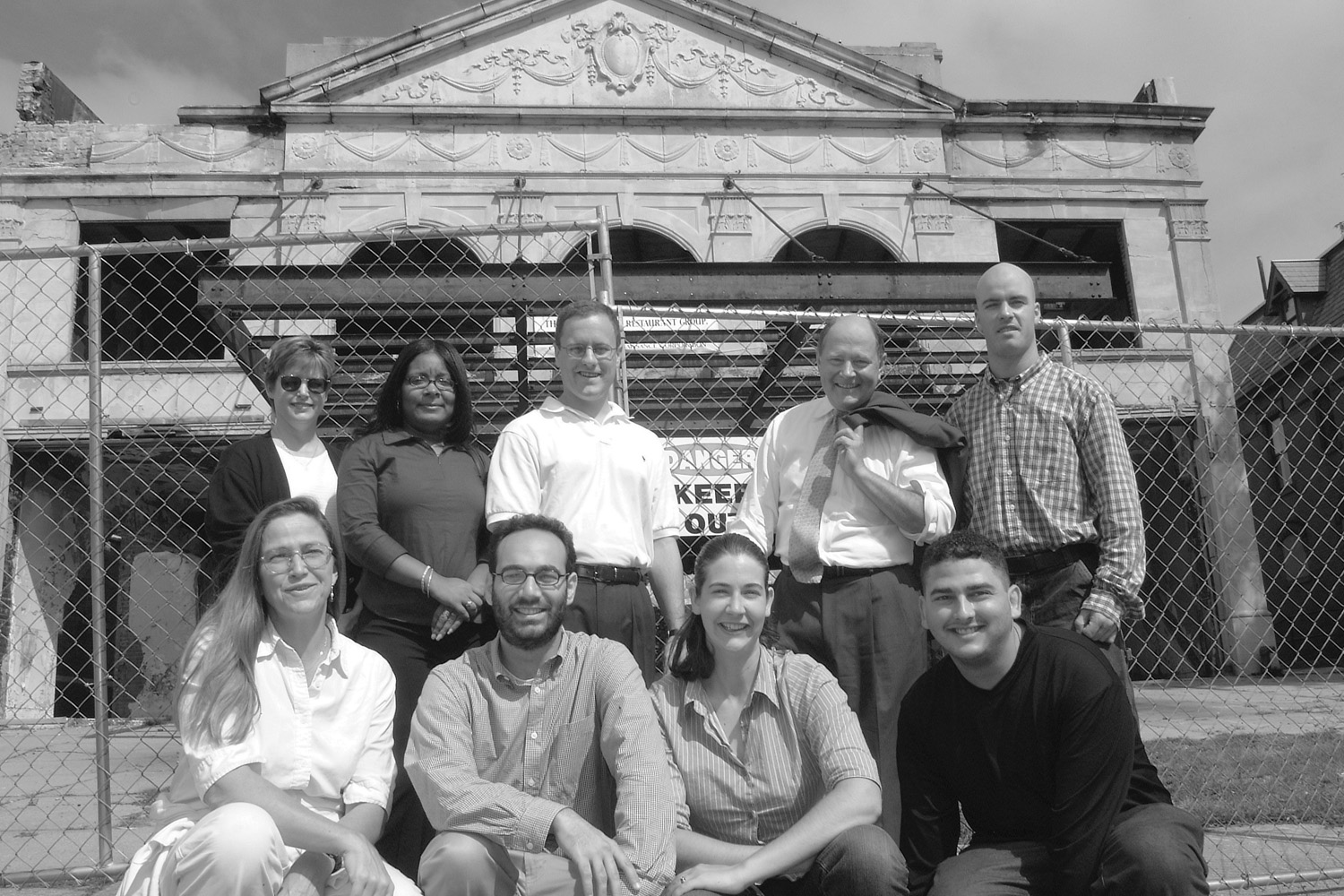A newly published history of the UConn School of Law focuses on the tumultuous birth of the law school’s pioneering clinical programs.
“Born Fighting: Clinical Education at the University of Connecticut School of Law” traces the development of the clinics from the creation of the Student Board of Public Defenders and Legal Assistants in 1964 through the establishment of a criminal clinic in 1969 to the vastly expanded clinical and experiential opportunities available at the law school today.
The book, by Professor Kent Newmyer and alumna Tatyana Marugg ’19, is the third in a series of short histories of the law school. The first book, by Newmyer and research assistant John Khalil, is “Hard Times and Best of Times: The University of Connecticut at 39 Woodland Street,” a history of the law school from its founding in 1921 through 1964. The second, “Still We Rise: African Americans at the University of Connecticut School of Law” by alumna Constance Belton Green, describes the struggles and triumphs of Black students and faculty at the law school.
Clinical education at UConn Law began at a time of swift change and much friction, not just in legal education but in American society. Opposition to the Vietnam War was mounting and students were increasingly challenging the status quo. Law schools were beginning to add courses stressing practical skills and clinics that offered students a chance to practice law. It was a controversial shift for faculties accustomed to a purely doctrinal curriculum.
Dean Howard Sacks, a pioneer in clinical education, and Joseph Harbaugh, first director of the criminal clinic, waded boldly into the midst of both controversies. The criminal clinic quickly became involved in the defense of Vietnam War protesters and began to draw the attention, and ire, of powerful political adversaries. The clinic survived not only because its students and faculty won important constitutional cases, but because the students found that the opportunity to practice law was a powerful and important part of their educational experience.
More than 50 years after the criminal clinic began its work, the UConn School of Law offers several in-house clinics, including trial and appellate divisions of the original criminal clinic, a Tax Clinic, an Asylum and Human Rights Clinic, an Intellectual Property and Entrepreneurship Clinic, a Mediation Clinic and an Animal Law Clinic. It also offers several partnership clinics, including the Center for Children’s Advocacy and the Connecticut Urban Legal Initiative, as well as a wide array of field placements.
“UConn Law has been one of the nation’s leaders in clinical education for over half a century,” Dean Timothy Fisher said. “Our students, their clients, the courts and the system of laws itself have all been the beneficiaries of these great programs. We are grateful to Professor Newmyer and Ms. Marugg for this compelling story of the origins and history of our program.”
Newmyer, a professor of law and history at UConn School of Law since 1997, has written several books of legal history, including “Supreme Court Justice Joseph Story: Statesman of the Old Republic “ and “John Marshall and the Heroic Age of the Supreme Court.” Marugg is an associate with Proskauer Rose LLP in Boston.
Although the coronavirus pandemic has interrupted distribution of printed copies of “Born Fighting,” it is available, along with the two earlier books, online in PDF format.



